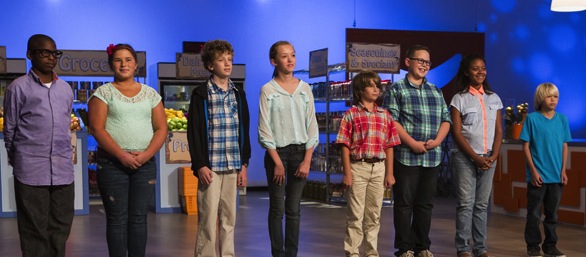By Justin Chao
The latest issue of the Atlantic featured an article called “How Junk Food Can End Obesity.” The author, David Freedman, believes that making processed food healthier will be a key factor in our fight against the obesity epidemic. Freedman argues that, with technology, we can produce processed food that will be both appealing and healthy. New advances in food technology by companies, such as TIC Gums and Fona International, have shown promise in making nutritious, healthy versions of food that mimic the flavor of the fatty and salty foods that people crave. For example, adding vanilla aroma to foods can make reductions of sugar in foods up to 25% undetectable to consumers. In addition, fast food chains such as McDonald’s have already begun cutting back on the fat, salt and calories in their products—as much as 10% in the last couple of years. “Fast food became popular because it’s tasty and convenient and cheap. It makes a lot more sense to look for small, beneficial changes than it does to hold out for big changes in what people eat that have no realistic chance of happening,” says Jamy Ard, a researcher at the Wake Forest Baptist Medical Center.
Authors such as Michael Pollan, have argued that the cure for the obesity epidemic is to encourage people to eat natural or unprocessed, food. Freedman, however, argues that Michael Pollan does not understand the reality of convincing people to change their eating habits. Many lower income people live in food deserts where healthy foods are often not available. With busy schedules, it becomes unrealistic to expect lower income people to have the time to be able to travel to markets where healthy food is sold. In addition, many obesity experts say that it is unrealistic to expect that people will make radical changes in their diets and start eating “broccoli instead of French fries”.
What do you think is a more effective way of fighting the obesity epidemic: encouraging people to change their diets or making processed food healthier? Join the conversation on our Instagram and Facebook for more weekly updates, news, and food science!





Interesting. I have just read an article about how the world has made us adapt to our current eating habit. There is no choice over changing our eating habit or making the food slightly more healthy. Both need to be done.
Investing money to improve fast food product wouldn’t just come with better formulation, it comes with commercial ads. Commercial ads that say fast food are now healthy, come and get it. How likely they will believe the ads? What would be the impact on our consumer?
One might argue, it is better to change our eating habit. It is true but how many of us are willing to? That is why the consumer needs to understand what makes fast food considered not a healthy option and why fast food consumption are being discouraged.
At the end, we really hope to see a healthier and lower consumption of fast food.
Thanks for your comments, Felicia. I agree with you that–in an ideal world–people would eat less fast food and processed food. I thought that this article was interesting in that it encourages us to take a critical look at both fast food and “natural” food. Sometimes, “natural” food can have more fat and sugar than processed food. Considering that it is difficult to make people change their eating habits, I agree with the author that creating healthier fast food is a key part of solving the obesity problem.
Surprisingly, McDonald’s has made it’s food healthier incrementally. They do not advertise that they have made their food healthier because, according to the author, they are afraid that it will negatively impact the way that their customers perceive them.
Dear Justin, very true. What is natural food in the first place? Having food in their most natural form with minimal processing as we know, doesn’t necessarily make it better. That is why fast food is not a bad food choice, it is in the “reduce” consumption section. I am surrounded by many who support natural food but to me, we need to know how to choose. We could create whatever we need to but it all goes back to the consumer themselves.
I would imagine money have been placed somewhere to create a healthier image, indirectly. Salad on the menu at McDonald, seems to be a healthier option for me. But, when I go to McDonald, I imagine myself drinking a few glass of soda too. After all, it is free refills. You see, the balance isn’t there. While we can improve some food to be healthier, we cannot gurantee the consumption of other type food is reduced.
It is a good highlight to see at the very least, we have some initiatives being done to make fast food, slightly better for those who can’t avoid it.